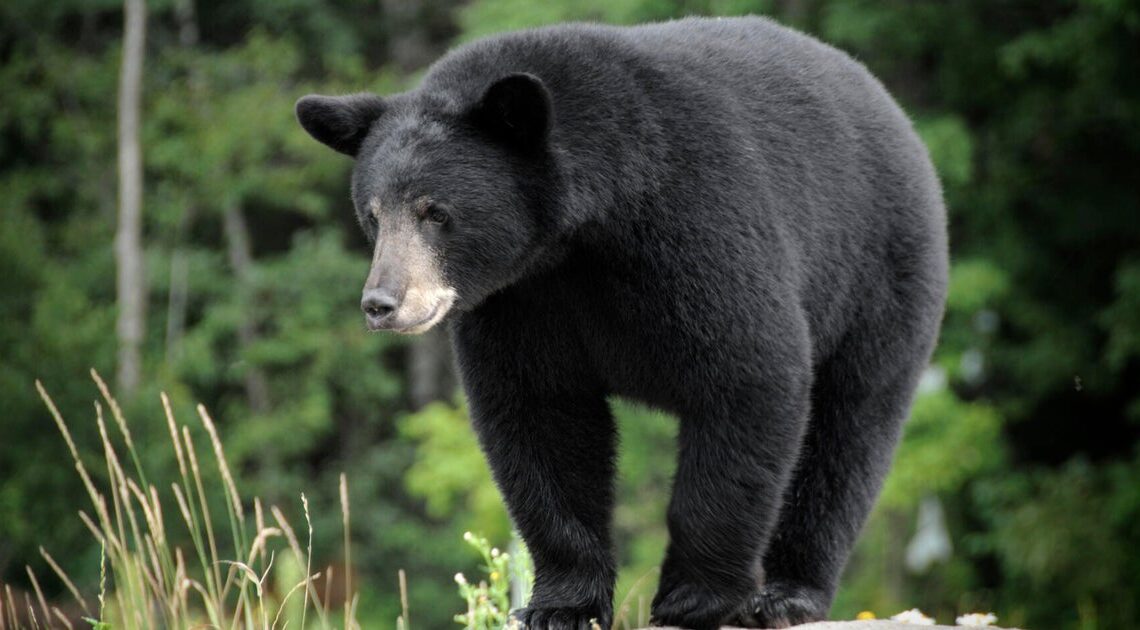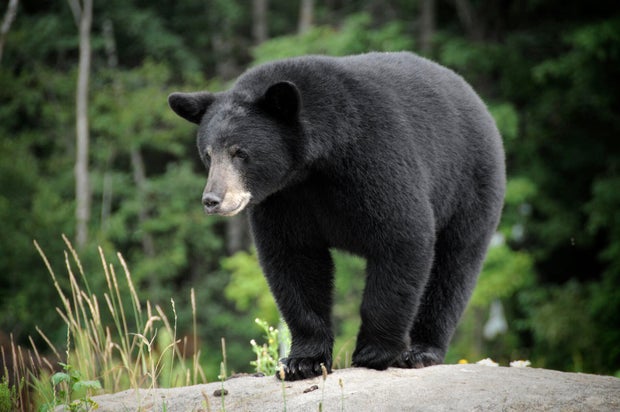
Visitors warned not to feed bears at national parks amid increase in incidents: “Bears learn quickly”
14. August 2025
The National Park Service is warning visitors not to feed black bears, saying that giving the animals food could lead to serious consequences for the animal and large fines.
“Feeding bears is not only illegal; it can be extremely dangerous for bears and visitors,” the Great Smoky Mountains National Park wrote in the warning.
The park reported an increase in incidents where tourists intentional fed bears, including three separate occurrences in just one week. In one case, a visitor fed a mother bear and her two cubs and was issued a citation.
Intentionally feeding wildlife in the park is a federal offense and can result in fines of up to $5,000 or imprisonment for up to six months, park officials said. Any park visitor who sees someone intentionally feeding a bear should inform park authorities, the NPS said.
“Bears learn quickly” and are endangered by intentional feeding, the park said. If a bear is fed by a person even once, that can lead to the animal becoming “conditioned to human food,” the park said. This can result in the bear seeking out people and exhibiting more aggressive behavior while losing its natural fear of humans, putting both park visitors and bears at risk. Bears seeking out human food are also more likely to be hit by a car, the park said.
Keith J. R. Binns / Getty Images
“In some cases, feeding a bear can result in the euthanasia of the animal,” the park said. Officials in Yellowstone National Park had to trap and kill an 11-year-old male grizzly bear in May after the animal became conditioned to human food. The bear began overturning bear-resistant dumpsters and trash cans to access human food, the park said.
The Great Smoky Mountains National Park is home to about 1,900 American black bears, according to the NPS. Bear activity is high in the area between May and August because the animal’s breeding season is putting a stress on natural food sources. Eighteen-month-old yearlings are also being left by their mothers and learning how to navigate on their own for the first time. These younger bears are more likely to wander into areas where humans are, the park said.
About 339 “negative human-bear encounters” are reported annually in the park, the NPS said. Many more incidents go unreported. While black bears are not normally aggressive, they will defend food and cubs. They may fight back if cornered, and may attack dogs, the NPS said. Dogs are involved in the majority of physical encounters between people and bears, the agency said.
Visitors to national parks should never feed or approach bears. Coming within 150 feet of the animals can result in fines and arrest, the park said. All food and trash should be stored securely and disposed of in bear-resistant containers. Visitors should also stay alert while in the park, and report unusual bear behavior to park authorities.
